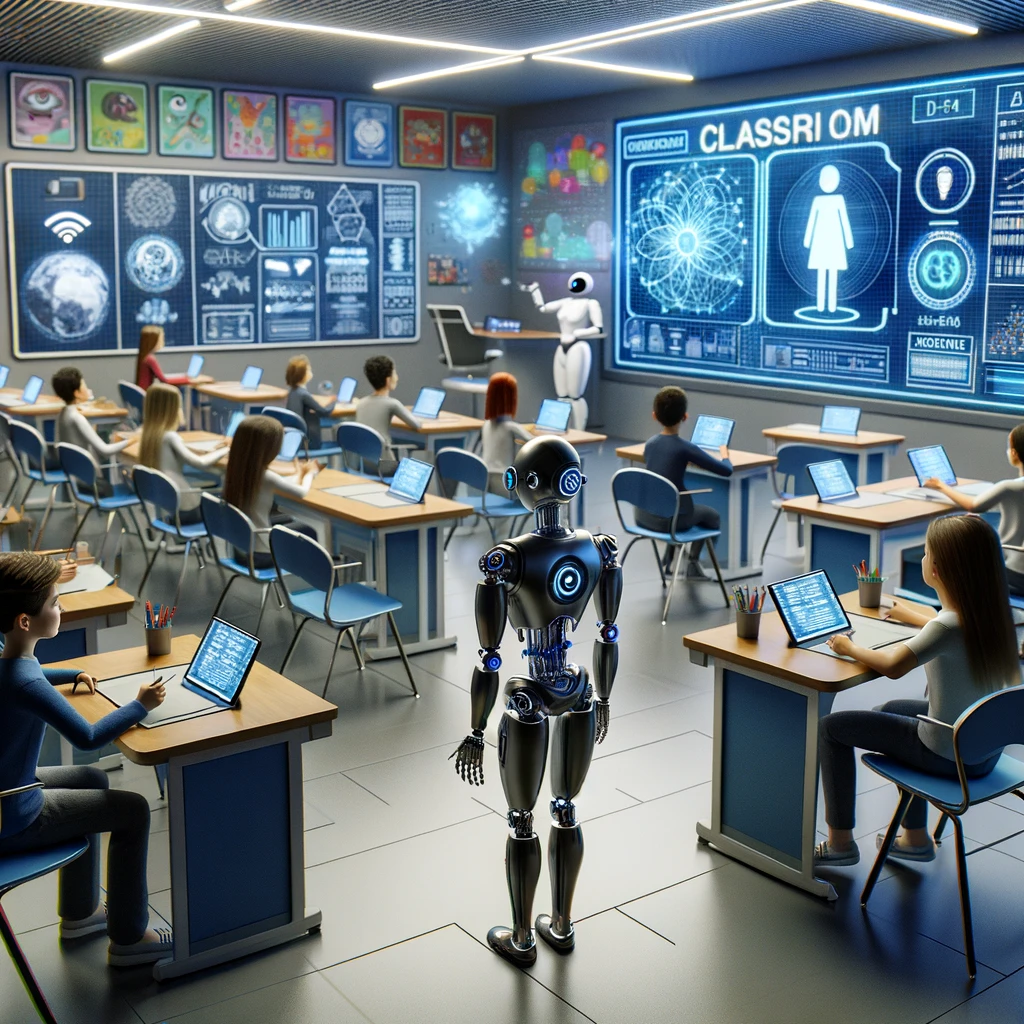In the fast-evolving landscape of education, technological advancements are reshaping traditional classrooms, offering new possibilities for both students and educators. One of the most transformative elements in this shift is the integration of Artificial Intelligence (AI) into education. This article delves into the future of education, specifically exploring the potential of AI-powered classrooms.
Definition of AI in Education
AI in education refers to the use of artificial intelligence technologies to enhance the learning experience. This can range from personalized learning platforms and intelligent tutoring systems to virtual classrooms, all designed to cater to individual student needs.
Significance of AI in Shaping the Future of Education
The significance of AI in education lies in its ability to revolutionize the learning process. By leveraging AI technologies, educators can create more personalized and adaptive learning environments, fostering a deeper understanding of concepts and improving overall student outcomes. The future of education is intrinsically linked to the effective integration of AI, promising a more inclusive and efficient learning experience.
Overview of AI-powered Classrooms
AI-powered classrooms go beyond the traditional model of education. These classrooms are equipped with advanced technologies that tailor the learning experience to the individual needs of each student. This goes beyond simply digitizing educational materials; it involves creating an intelligent and responsive environment that adapts to the unique learning styles, strengths, and challenges of each learner.
The Role of AI in Education
One of the primary roles of AI in education is the implementation of personalized learning. Adaptive learning platforms use AI algorithms to assess individual student progress and adjust the curriculum accordingly. This ensures that each student receives a tailored learning experience, progressing at their own pace and focusing on areas where they need more support.
Customized learning paths take this a step further by allowing students to explore topics based on their interests and abilities. AI algorithms analyze data on a student’s academic performance, engagement, and preferences to recommend learning paths that align with their individual goals.
Intelligent Tutoring Systems
Intelligent tutoring systems powered by AI offer real-time feedback and individualized instruction. These systems can identify areas where a student is struggling and provide targeted support. The immediate feedback loop helps students grasp concepts more effectively and allows educators to intervene promptly when needed.
Virtual Classrooms
Online learning platforms and interactive learning environments contribute to the virtual classrooms of the future. These platforms leverage AI to create engaging and immersive learning experiences. Virtual classrooms enable collaboration among students, irrespective of geographical locations, providing a global perspective to education.
AI Technologies Transforming Classrooms
Machine Learning
Machine learning plays a pivotal role in AI-powered classrooms. Predictive analytics for student performance helps educators identify potential challenges a student might face in their academic journey. Automated grading systems streamline the assessment process, allowing educators to focus more on teaching and mentoring.
Natural Language Processing
Natural Language Processing (NLP) is employed in language learning apps and virtual writing assistants. These tools assist students in improving their language skills by providing instant feedback on grammar, syntax, and writing style. NLP enhances language learning by making it more interactive and personalized.
Robotics in Education
AI-powered educational robots contribute to hands-on learning experiences. These robots can be programmed to teach coding and other STEM-related subjects, making learning more dynamic and engaging. Coding and robotics programs prepare students for the technology-driven future by developing essential skills such as problem-solving and critical thinking.
Benefits of AI-powered Classrooms
Enhanced Learning Experience
AI-powered classrooms enhance the learning experience by catering to individual needs. Adaptive learning platforms and intelligent tutoring systems keep students engaged and motivated. The ability to access diverse learning resources, including virtual simulations and interactive content, enriches the educational journey.
Efficient Resource Management
Automated administrative tasks, such as grading and scheduling, free up valuable time for educators. AI optimizes classroom planning by analyzing data on student performance and preferences. This efficiency allows educators to focus more on teaching and providing personalized support to students.
Challenges and Considerations
Ethical Concerns
Despite the numerous benefits, the integration of AI in education raises ethical concerns. Privacy issues related to the collection and use of student data must be carefully addressed. Additionally, the potential for bias in AI algorithms requires constant vigilance to ensure fair and equitable learning opportunities for all students.
Accessibility and Inclusivity
The digital divide poses a significant challenge in ensuring that AI-powered education is accessible to all. Efforts must be made to bridge this gap, providing equal opportunities for students regardless of their socio-economic backgrounds. Ensuring access for students with disabilities is also a crucial aspect of building inclusive AI-powered classrooms.
Teacher Training and Integration
For AI to be effectively utilized in classrooms, educators need proper training. Professional development programs should equip teachers with the skills to integrate AI technologies seamlessly into their teaching methodologies. Collaborative learning models that encourage educators to share best practices and experiences can further facilitate this integration.
Case Studies
Examining successful implementations of AI in classrooms provides valuable insights into the tangible benefits of this technology. Examples of improved student outcomes and institutional success stories highlight the transformative potential of AI in education.
Future Trends in AI and Education
Emerging Technologies
Looking ahead, emerging technologies such as augmented reality in education and the integration of blockchain for credentials are poised to further revolutionize the educational landscape. Augmented reality offers immersive and interactive learning experiences, while blockchain ensures the security and authenticity of educational credentials.
Evolving Pedagogical Approaches
Blended learning models, which combine traditional classroom instruction with online learning, are becoming increasingly popular. This approach leverages the strengths of both in-person and online education, providing flexibility and personalized learning experiences. Lifelong learning platforms, supported by AI, are also gaining prominence as education becomes a continuous and evolving journey.
Conclusion
In conclusion, the future of education is undeniably intertwined with the integration of AI-powered classrooms. The potential for personalized learning, intelligent tutoring, and virtual classrooms offers a glimpse into a more dynamic and inclusive educational experience. While challenges such as ethical concerns, accessibility, and teacher training must be addressed, the ongoing evolution of the educational landscape promises a future where AI enhances the learning journey for students worldwide.







